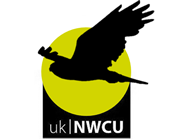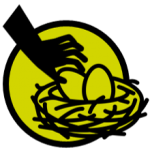A Spalding man has been sentenced to nine months in prison for trading in illegal ivory, including buying unworked sections of illegal elephant tusks.
Slawomir Kazmierczak, 55, of Redthorne Close, Spalding previously pleaded guilty to nine charges relating to the Control of Trade in Endangered Species (Enforcement) Regulations 1997. The nine charges relate to offences between May 2013 and April 2017.
Five of the charges related to trading prohibited items (ivory) and the other four to fraudulent evasion of prohibitions.
Alan Roberts of the National Wildlife Crime Unit (NWCU) said:
“In April 2017 we were notified by UK Border Force that they had intercepted a number of packages at Heathrow containing ivory. These packages were destined for China and Hong Kong and the items had been mislabelled as bone or wood. We then launched this investigation as the evidence clearly showed significant unregulated trade. Whilst a lot of the items sold were probably old, neither Kazmierczack or the investigators could be sure of that and it is this unregulated sale and export of ivory that fuels the market and has a direct impact on wild elephants in Africa. African Elephants are still being killed for their ivory today so it is imperative that those that are supporting this abhorrent activity are brought to justice.”
Senior Investigating Officer for Lincolnshire Police, Detective Constable Aaron Flint said:
“This case is one of the first of its kind and this sentence concludes a lengthy and complicated investigation.
“With the support of the NCWU we carried out a warrant at Kazmierczack’s home and found wardrobes and cupboards full of ivory – we were shocked at how much there was. “It transpired that Kazmierczack was trading in illegal ivory by buying and selling items on eBay. Since June 2013, this man had bought and sold 200 ivory items which raised about £14,000 on eBay. About half of these were sold to buyers outside of the EU. He had made every attempt to conceal his criminal activity by falsifying dispatch papers and labels, but thankfully he was caught out. During the warrant we even caught him heading to the bathroom with his laptop – although we’re not sure what he was planning on doing with it!”
“I hope this sentence highlights that this type of activity is illegal and discourages anyone else from this criminality.”
Tim Luffman, from the Border Force CITES Team (Convention on International Trade in Endangered Species) said:
“The interception by Border Force of these illegal ivory packages was a vital first step in this case, leading to a prolific trader being identified and ultimately prosecuted. Trading in illegal ivory causes suffering and environmental damage. Border Force CITES experts work tirelessly to clamp down on this trade and take prohibited products out of circulation. When illegal items are seized, we will not hesitate to work with other law enforcement partners such as the police and the National Wildlife Crime Unit to ensure that smugglers are identified and brought to justice.”
The sale of ivory and the law
- It is illegal to buy or sell any unworked ivory or elephant tusk.
- Currently all ivory items which have been carved before 1947 can be bought and sold within the EU – although legislation has been passed in the UK to close down unregulated trade. This will become law in the near future.
- Bans for importing ivory have been in place in the US and China since 2017.
- Items created after 1947 require an Article 10 certificate – Kazmierczack didn’t hold any of these.
- eBay has had an imposed ivory ban in place for more than 10 years. In this case items were bought and sold under code names such as ‘faux ivory’ and ‘bovine bone’.
- Trading in illegal ivory could result in a prison sentence of up to five years or an unlimited fine.





